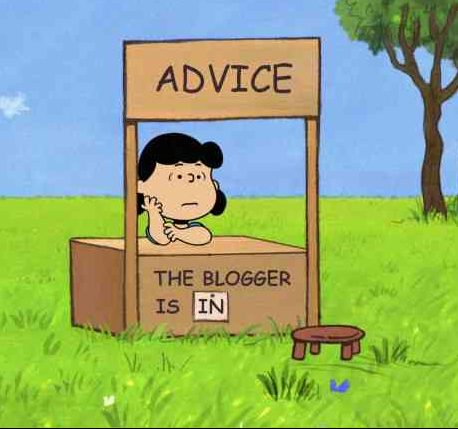How to Write When You Don’t Want To: An Uncommon Approach
Today’s guest post is by Michelle Boyd.
It’s early. The apartment is quiet. My calendar’s clear and my phone’s on Do Not Disturb. I’ve got all the time in the world to write … but I don’t want to.
It doesn’t matter that the conditions are perfect, or that I’ve been looking forward to this quiet time for days. The fact is, I’m dreaming of my winter garden. I’m busy planning holiday menus. And there’s a knitting project calling to me from the comfy chair in my living room.
It all adds up to the same old thing: I want the writing to be done. But I don’t want to have to do it.
When this happens, I sometimes go down a dreadful path, berating and judging myself, wondering why I’m being so “lazy.” I do this even though I know, from research, personal experience, and a decade coaching other writers that there are kinder, more effective strategies for getting ourselves to write when we don’t want to.
The one I’d like to suggest? Lie.
I first learned this trick from my running self, who is also quite “lazy,” especially when the weather turns cold. On the days I don’t want run, I swing my legs over the side of the bed and say to myself, “I’m not going running, I’m just getting out of bed.”
Then I put on my running clothes and tell myself, “I’m not going running, I just put on my tights ’cause I’m cold.”
Then I put on my running shoes and walk out the door and assure myself, “I’m not going running, I’m just seeing how cold it is out there.”
You get the idea, right?
Two minutes later I’m on the pavement. It’s cold and it’s dark—just as it was ten minutes ago when I was hating on the idea of running from the warmth of my bed. The difference is I’m already outside and it’s getting lighter by the minute, so why don’t I just go on ahead and go for a run?
Fifteen minutes after that, I’m warmed up, gliding along next to Lake Michigan, and—I won’t lie—I’m feeling myself. The cold weather clouds are billowing out in endless shades of gray, and I remember, Oh right. I actually like running once I get into it.
Same thing with writing.
I wanted to have written this blog post to you, but I didn’t want to write it. So, to get myself to do so, I walked into my office and said, “I’m not writing, I’m just going in my office to see if it’s messy or not.”
Then I opened the draft of this post and muttered to myself, “I’m not writing, I’m just going to see what the draft looks like.”
Then I wandered across a troublesome sentence and thought, “Mggh. That would sound so much better if I just—”
Bam! All of a sudden I’m writing.
Why does this strategy work? What’s happening that makes it so powerful for so many people? It’s not because I’m a great liar. Obviously, I know I’m lying to myself, so no one’s being fooled.
The reason this strategy works is because “lying” is an easy way to do two things that the research on productivity says will ease our way into writing.
First, “lying” helps us take small, manageable, incomplete steps toward the dreaded activity we don’t want to do.
Notice I said “toward” the activity. Not “of” the activity. So, we don’t want to just plunk ourselves down on the couch and pop open the laptop. Good heavens, no. That might cause us to run away.
Instead, we want to break down the approach to the laptop into infinitesimally small pieces. The idea here is that nothing is happening—that each step is so miniscule and inconsequential that there’s nothing for us to revolt against.
Scholars who study habits and goal setting all tell a similar story: one of the best strategies for getting started on a dreaded activity is to break it down into parts so small and so manageable that getting them done feels like no trouble at all. We sorta sneak up on ourselves until we’re past our own defenses and helpless against the attack.
The second reason this strategy works is that, while taking those small, incomplete steps, I keep up a steady stream of internal reassurances that these steps do not, under any circumstances, constitute a commitment to the activity itself.
This internal dialogue replaces other forms of self-talk that research shows us are death to writing: complaints about having to write, cataloguing of our writing fears, assertions that we’re not smart/creative/experienced enough, questions about whether we can write at all.
Once we start these dialogues, our chances of actually getting writing done is significantly diminished. Fear and anxiety can hijack our capacity to reason, so that even if we do get to the writing, the cognitive work we need to do is much harder.
But if we can head off those agitating voices with a less threatening form of self-talk, our chances of getting our butts in the chair and our minds in the game are a lot higher.
So, the next time you have the time and means to write but none of the motivation, try this strategy:
Step 1: Identify three tasks you’d need to take to be “ready” to write. These tasks don’t have to be anything special. They might be as preliminary as “Turn on the computer” or “Open the file with my notes on Chapter 1.” Avoid the temptation to jump ahead to big tasks like “Read the first paragraph.” I know that seems strange, but when you really don’t want to write, a task like that might scare you off.
Step 2: Assess these tasks to make sure you can complete them. Ask yourself: Are they doable? Are they laughably small? Are they so manageable and unthreatening that you’d almost be insulted if someone said you couldn’t do them? Congratulations: your tasks are perfectly sized for you. You can move on to Step 3.
Step 3: Complete the first task, assuring yourself the whole time that “I’m not writing, I’m just [insert lie].” Say this to yourself over and over again if you need to. Remember, this is a substitute for “Ugh, I really don’t want to do this/this thing is crap anyway/I’m not a real writer” or whatever feeling is getting in your way.
Step 4: Look up thirty minutes later and realize you’ve been writing.
It’s OK if you don’t want to write. Feeling “lazy” doesn’t mean anything about who you are as a person. It just means you’re a human being, one who sometimes needs a way to prompt themselves to work.
You might be tempted to boss yourself into writing. But, it turns out, subterfuge is equally effective—and definitely way more fun. Try it out and see what happens to your writing. Then, you can get on with enjoying the rest of your life.
Featured photo by ryan-snaadt-TsRnxEVecbs-unsplash.













Excellent post — In my world (of writing coaching, with a subspecialty of clients who have interesting neurologies, e.g., ADHD), we call this “sneaking up on the work.” For ADHD-ers and ADD-ers, “trying harder” and “just do it” actually make it *more* difficult to get going (and keep going) on writing (and pretty much anything else, for that matter).
Thanks!
Exactly right! I am ADD (non-hyperactive). Over years, I’ve learned to sneak up on dishwashing like this, even though I don’t hate washing dishes. I definitely need to extend this more deliberately to writing.
What an interesting technique! I will be trying this very soon because I have words waiting for me but I can’t seem to make myself capture them. Sneaking up on them sounds way more fun!
Excellent post! Just what I need. Thank you.
I’ve done something similar that has worked for me. I have a goal of writing for 30 minutes, but instead of “writing” I have to just sit down and DO NOTHING ELSE for 30 minutes. I can’t look at my phone, or check FB, or answer emails. I can only just SIT THERE for 30 minutes. If I don’t want to write, fine, I don’t write, but I still have to sit there and do nothing else. Out of boredom I find I look at my writing notes or what I wrote yesterday, or I start going through a scene in my head then maybe jot down a note about it… And that finally puts my foot through that horrid door called procrastination.